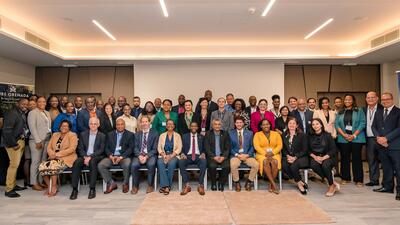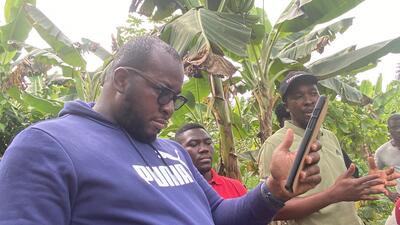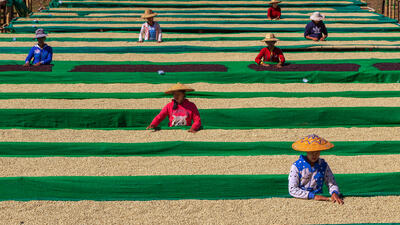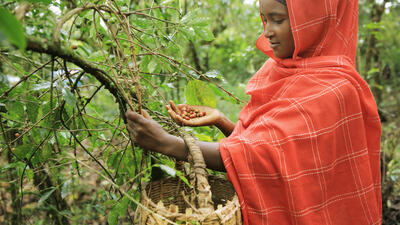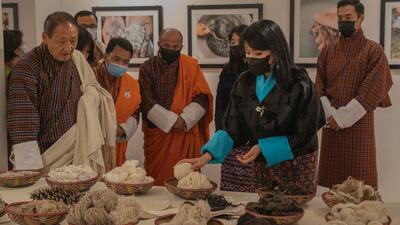News Brief
APEC ministers adopt a new vision for regional growth
In November, Asia-Pacific leaders gathered under the theme of ‘Change and Action’ for the 22nd APEC (Asia-Pacific Economic Cooperation) Ministerial Meeting in Yokohama, Japan.
At the conclusion of the two-day meeting, leaders from the 21 member countries adopted a declaration for ‘The Yokohama Vision – Bogor and Beyond’, pledging further efforts in free trade and balanced economic growth towards the realization of a Free Trade Area of the Asia-Pacific (FTAAP).‘An FTAAP should be pursued as a comprehensive free trade agreement by developing and building on ongoing regional undertakings, such as ASEAN [Association of Southeast Asian Nations]+3, ASEAN+6, and the Trans-Pacific Partnership, among others,’ said the declaration released at the end of the meeting.
Leaders also mapped out an action plan for their growth strategy encompassing structural reform, human resource and entrepreneurship development, green growth, knowledge-based economy and human security.
The declaration also included a commitment to ‘moving toward more market-determined exchange rate systems’.
For further information visit www.apec.org.
G20 Summit pledges to help developing countries through Seoul Consensus
At the G20 Summit in Seoul, Republic of Korea on 11–12 November, G20 leaders formally endorsed a G20 development agenda, the ‘Seoul Development Consensus for Shared Growth’ (the Seoul Consensus). Under this consensus, G20 countries have committed to help developing countries ‘build the capacity to achieve and maintain their maximum economic growth potential’ – particularly in the areas of food and income security, financial inclusion, domestic resource mobilization, infrastructure, trade, human resources development, private investment job creation, and knowledge sharing. G20 leaders also reaffirmed their commitment to meeting the Millennium Development Goals and aid pledges.
On the trade front, leaders made broad pledges not to pursue protectionist policies and to work towards concluding the long-stalled Doha Round of trade liberalization talks.
For more information visit www.seoulsummit.kr/.
Joint report highlights benefits of trade for employment and growth
A joint report, submitted by the Organisation for Economic Co-operation and Development, the International Labour Organization, the World Bank and the World Trade Organization (WTO) at the G20 Summit in November, highlighted the benefits of trade liberalization for worldwide employment and economic growth.
Drawing on the latest research from the four collaborating organizations, the report, Seizing the Benefits of Trade for Employment and Growth, cited cross-country evidence suggesting that a 10 per cent increase in total trade openness reduces unemployment by about 1 per cent.
The report demonstrated that the benefits of trade generally outweigh the costs associated with the reallocation of labour and capital to more efficient uses, but warned that in order for open markets to be sustained those costs need to be recognized and policies put in place to assist workers and communities to adjust to a more competitive environment. The report called for further liberalization of trade in goods and services, as well as the need for complementary action at national and international levels to facilitate adjustment and ensure that the benefits of trade are widely shared.
For more information visit www.oecd.org/dataoecd/61/57/46353240.pdf.
WTO launches new trade-related technical assistance database
WTO has developed the Global Trade-Related Technical Assistance Database (GTAD) to ensure a coordinated approach to the design and implementation of technical assistance programmes among partner agencies, including ITC, beneficiaries and donors. By displaying the future technical assistance activities of partner agencies, the database will bring transparency and will help to reduce the duplication of activities and enhance the efficiency of their delivery.
In addition to providing a comprehensive listing of activities, GTAD also offers a step-by-step users’ guide, selected documentation from reporting institutions, such as the WTO’s Biennial Technical Assistance and Training Plans, annual reports on technical assistance and training activities, and guidelines for conducting needs assessments. The database also provides links to other organizations’ websites and databases.
For more information visit http://gtad.wto.org/.
ITC launches enterprise competitiveness trainers and advisers’ network for Africa
ITC has launched a new network of trainers and advisers for small and medium-sized enterprises (SMEs) in Africa to facilitate increased export growth and better integration into global markets.
The network will provide an ideal platform for maximizing synergies across business advisory services and extending awareness of the existence of such qualified training, counselling and advisory services in Africa, for Africa.
With the help of the donor community and its partners in the field, ITC has created a strong training and advisory network for SMEs in Africa, covering key aspects of the export business including export management, the export value chain, standards and quality management, packaging, export marketing and branding, and e-solutions.
‘The immediate challenge is to empower the network to play its role and to ensure its sustainability, with the active support of the trade support institutions involved,’ says Aicha Pouye, ITC Director of the Division of Business and Institutional Support.
In the medium term, ITC aims to create and link expert support networks for SMEs across different regions of the continent, using web-based networking technologies.




